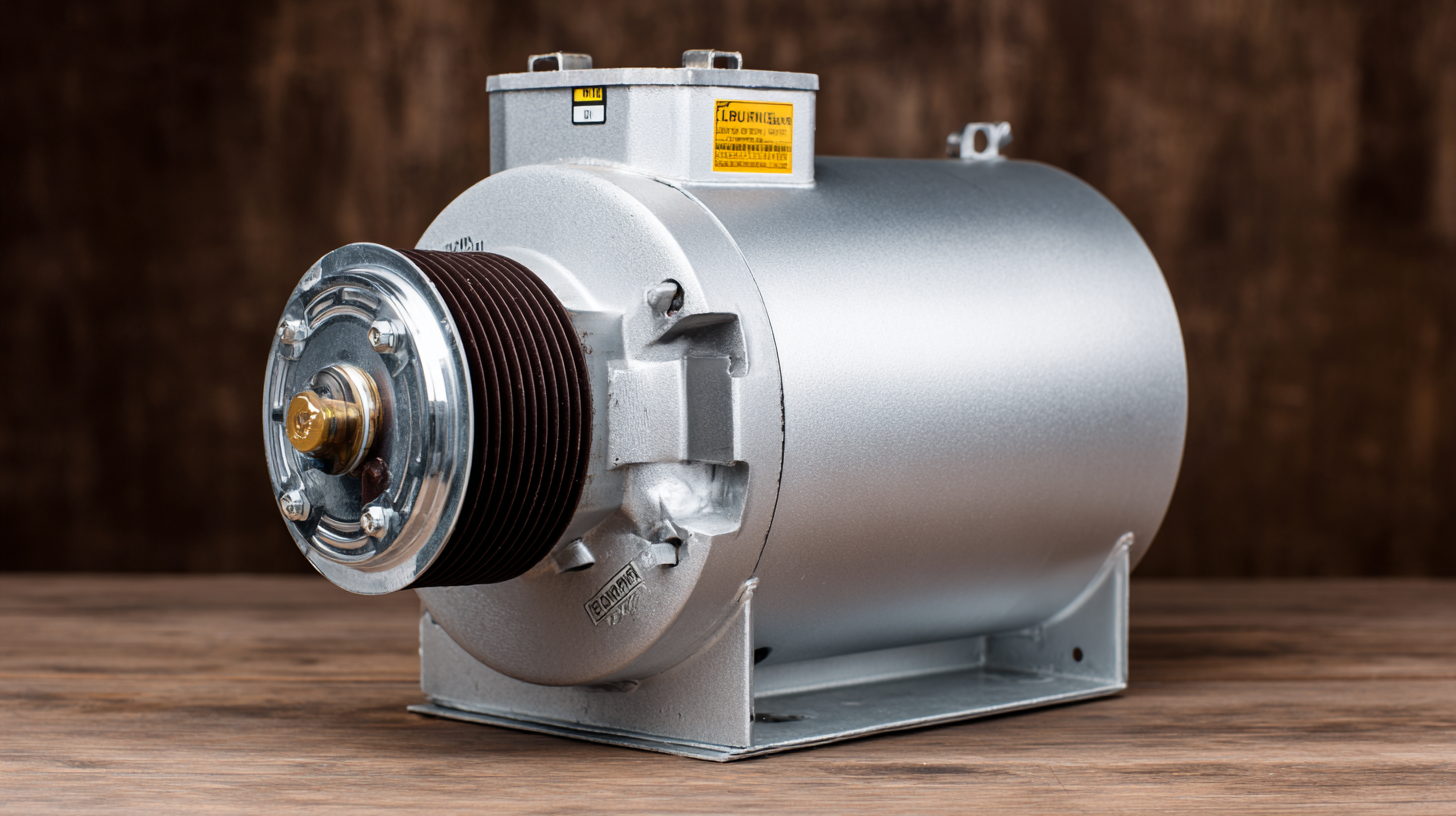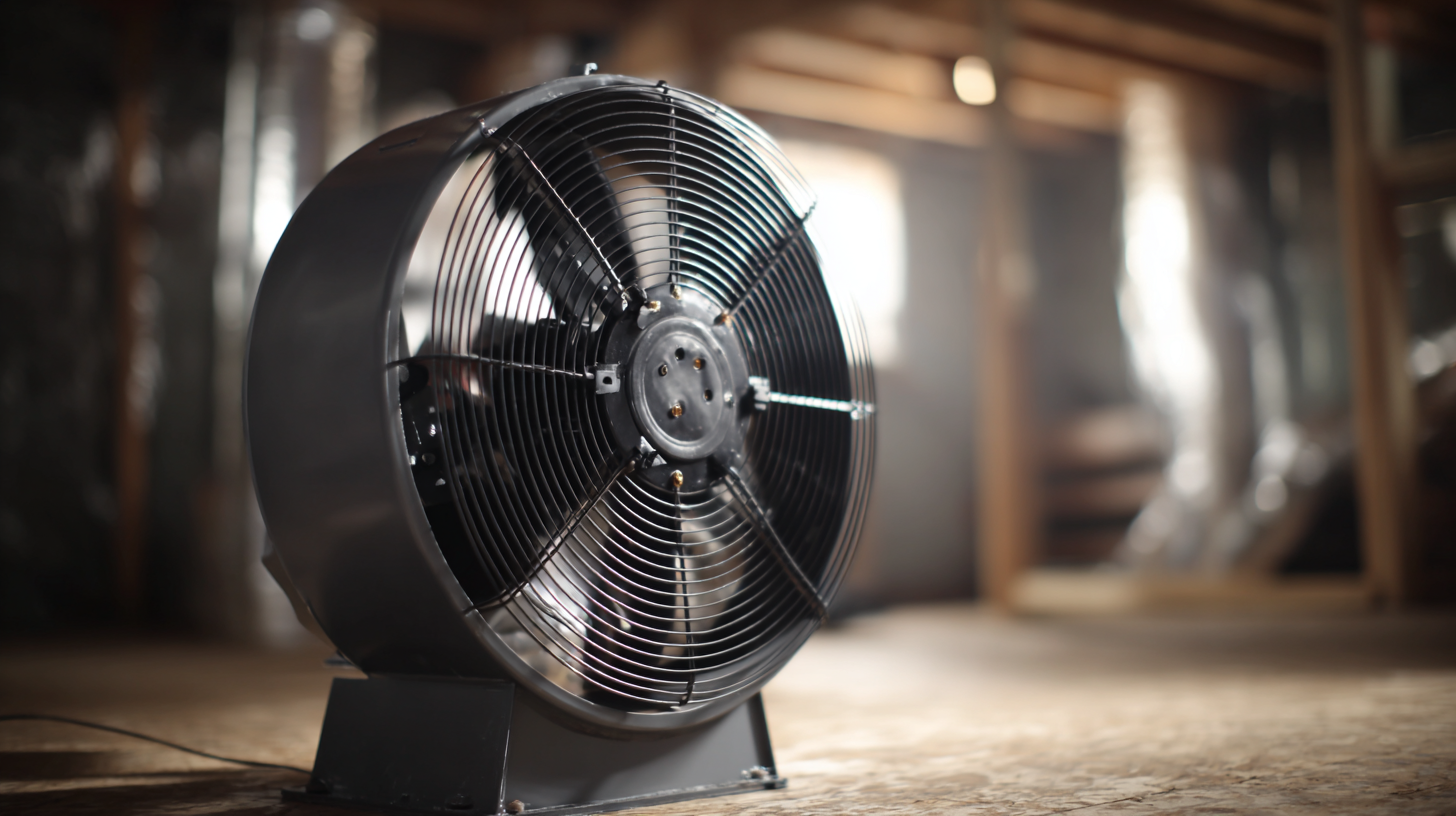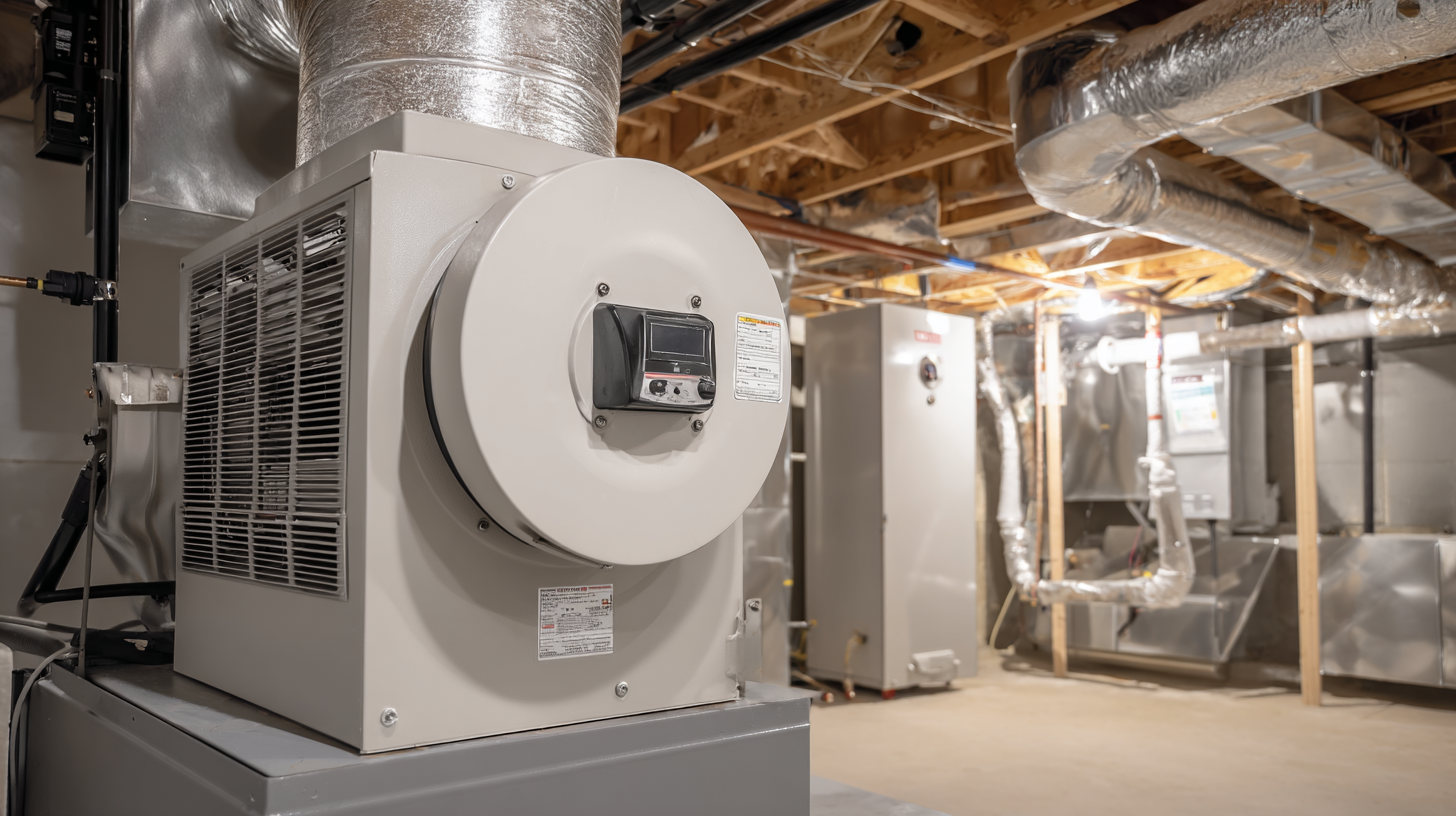




When it comes to maintaining a comfortable home environment during the colder months, selecting the right furnace motor is crucial. A furnace motor not only regulates the airflow but also significantly impacts the overall efficiency of your heating system. With various options available in the market, understanding the advantages of after-sales service and repair costs is essential for homeowners. A well-chosen furnace motor can lead to long-term savings by minimizing maintenance issues and ensuring reliable performance.

In this blog, we will explore the key factors to consider when choosing a furnace motor that meets your heating needs, while highlighting the importance of after-sales support and the financial implications of repairs. By making an informed decision, you can ensure that your home remains warm and cozy throughout the winter, without breaking the bank.
Choosing the right furnace motor is crucial for maintaining an efficient and comfortable home heating system. An appropriate motor not only enhances the performance of your furnace but also ensures that your energy costs remain manageable. A high-quality motor can help distribute heat evenly throughout your home, preventing cold spots and improving overall comfort during the chilling winter months.

Tips: When selecting a furnace motor, consider the motor's horsepower and speed. Higher horsepower usually translates to better performance, but it’s essential to match the motor’s specifications with your furnace model. Additionally, look for energy-efficient motors that can help lower your utility bills. A motor with variable speed capabilities can adjust its operation according to the heating demands, providing consistent temperature control and enhancing comfort.
Another important factor to consider is the noise level of the motor. A quieter motor will significantly enhance your home's comfort, making it easier to relax without the distraction of loud operational noises. Prioritize models known for their quiet performance and durability, ensuring that your heating system operates smoothly for years to come.
When selecting a furnace motor for home heating needs, several key factors play a crucial role in ensuring optimal performance and energy efficiency. One of the primary considerations is the motor type. According to the U.S. Department of Energy, ECM (Electronically Commutated Motors) are becoming increasingly popular due to their high efficiency and ability to adjust speed based on heating demands, which can lead to decreased energy bills by up to 30% compared to traditional PSC (Permanent Split Capacitor) motors.

Another vital consideration is the motor's horsepower and airflow capacity, which is essential for adequate heat distribution throughout the home. The Air Conditioning Contractors of America (ACCA) recommends that homeowners calculate their specific BTU (British Thermal Units) requirements based on the size and insulation of their living space. For efficient heating, motors need to be appropriately matched to the furnace and the home’s demands, with motors typically ranging from 1/4 to 1 horsepower for residential units. Ensuring compatibility not only provides effective heating but also extends the lifespan of the furnace system, making it a sound investment for homeowners.
The HVAC industry is set for significant evolution as we approach 2025, with various market projections showcasing robust growth across multiple segments. The Global HVAC Air Handling Units Market, valued at approximately $7.17 billion in 2025, is anticipated to expand at a compound annual growth rate (CAGR) of 5.4%, potentially reaching $10.37 billion by 2034. This growth is largely driven by innovations in modular designs and the increasing demand for IoT and digital integrations that streamline the management of indoor environments.
Additionally, the fan coil unit market is forecasted to grow from a valuation of $4.9 billion in 2024 at a CAGR of 4.8% over the next decade. This upward trend reflects the industry's focus on energy efficiency and improved indoor air quality, factors that are becoming increasingly important for consumers and businesses alike. As the HVAC sector adapts to these demands, understanding market dynamics and technological advancements will be critical for stakeholders aiming to excel in this transforming landscape.
Innovative technologies are continuously reshaping the future of home heating solutions, providing homeowners with energy-efficient options that significantly reduce environmental impact and operational costs. According to the U.S. Department of Energy, upgrading to a high-efficiency furnace with advanced motor technology can result in savings of up to 30% on heating bills. These motors, often permanently split capacitor (PSC) or electronically commutated motors (ECMs), not only enhance efficiency but also lower noise levels, creating a more comfortable living environment.
Tip: When selecting a furnace motor, consider models with ECM technology, which adjust their speed based on heating demand, resulting in optimized energy use. This feature is vital for homes in areas with fluctuating temperatures, as it provides a more consistent level of comfort without significant spikes in energy consumption.
Moreover, smart thermostat integration continues to be a game-changer in the industry. Reports indicate that homes equipped with smart thermostats can achieve energy savings of approximately 10-20% over standard thermostats. By utilizing real-time data, these devices optimize heating schedules and reduce unnecessary energy use during off-peak hours.
Tip: Look for furnace motors compatible with smart home systems to maximize efficiency while enjoying the convenience of advanced control features. Opting for such innovative solutions not only supports sustainability efforts but also fosters a smarter, more cost-effective home heating strategy.
When selecting a furnace motor, one of the most critical aspects to consider is its economic impact on home energy costs. According to the U.S. Department of Energy, heating accounts for approximately 42% of energy consumption in an average American home. Therefore, the efficiency of the furnace motor plays a significant role in overall energy expenses. Data from the Energy Information Administration indicates that a high-efficiency motor, such as those with ECM (Electronically Commutated Motor) technology, can improve efficiency by up to 30% compared to traditional motors. This can lead to substantial savings on annual heating bills, making the initial investment in a superior motor worthwhile over time.
Moreover, a report from the American Society of Heating, Refrigerating and Air-Conditioning Engineers (ASHRAE) notes that upgrading to a variable-speed motor can enhance a furnace's ability to maintain a consistent temperature in your home. This optimization not only improves comfort but also reduces energy consumption. Homes with variable-speed motors can expect a decrease in energy usage ranging from 10% to 30% when compared to standard fixed-speed motors. Hence, evaluating the long-term benefits of different furnace motor types is crucial for homeowners looking to minimize their energy costs while maximizing efficiency and comfort.
| Motor Type | Efficiency Rating (AFUE) | Average Cost ($) | Expected Lifespan (Years) | Annual Energy Cost Savings ($) |
|---|---|---|---|---|
| Single Speed | 80% - 85% | 500 | 15 | 200 |
| Multi-Speed | 85% - 90% | 700 | 20 | 300 |
| Variable Speed | 90%+ | 1200 | 25 | 500 |
| ECM (Electronically Commutated Motor) | 90%+ | 1000 | 30 | 600 |


